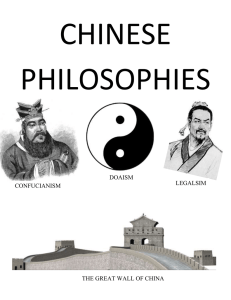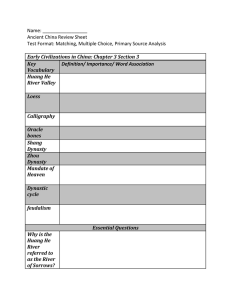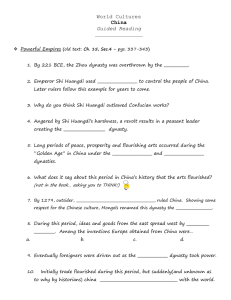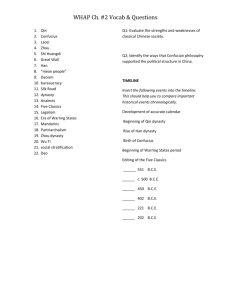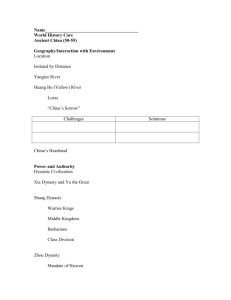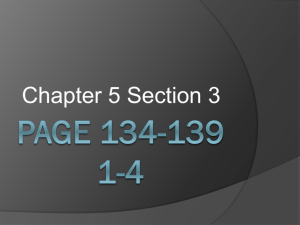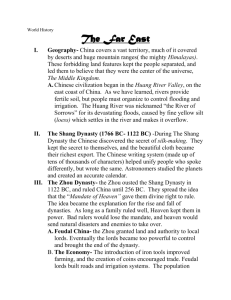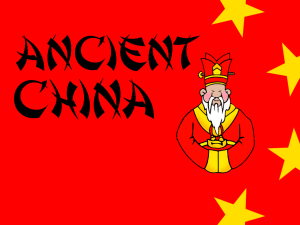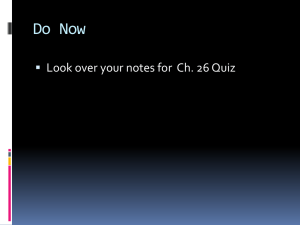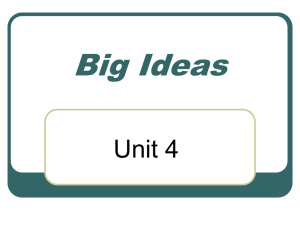Unit 6 - Ancient China - MStew
advertisement
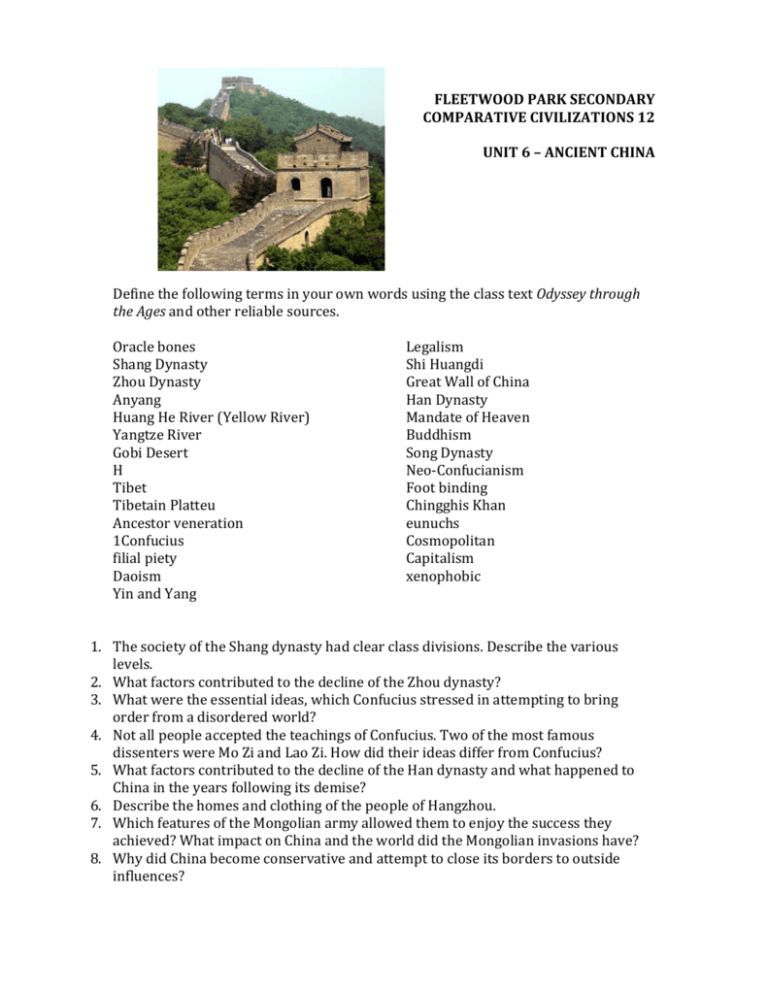
FLEETWOOD PARK SECONDARY COMPARATIVE CIVILIZATIONS 12 UNIT 6 – ANCIENT CHINA Define the following terms in your own words using the class text Odyssey through the Ages and other reliable sources. Oracle bones Shang Dynasty Zhou Dynasty Anyang Huang He River (Yellow River) Yangtze River Gobi Desert H Tibet Tibetain Platteu Ancestor veneration 1Confucius filial piety Daoism Yin and Yang Legalism Shi Huangdi Great Wall of China Han Dynasty Mandate of Heaven Buddhism Song Dynasty Neo-Confucianism Foot binding Chingghis Khan eunuchs Cosmopolitan Capitalism xenophobic 1. The society of the Shang dynasty had clear class divisions. Describe the various levels. 2. What factors contributed to the decline of the Zhou dynasty? 3. What were the essential ideas, which Confucius stressed in attempting to bring order from a disordered world? 4. Not all people accepted the teachings of Confucius. Two of the most famous dissenters were Mo Zi and Lao Zi. How did their ideas differ from Confucius? 5. What factors contributed to the decline of the Han dynasty and what happened to China in the years following its demise? 6. Describe the homes and clothing of the people of Hangzhou. 7. Which features of the Mongolian army allowed them to enjoy the success they achieved? What impact on China and the world did the Mongolian invasions have? 8. Why did China become conservative and attempt to close its borders to outside influences? 9. To what degree do Chinese advancements in medicine reflect a sound understanding of the nature and causes of illness and disease? 10. The Chinese observed time differently from many western civilizations. How did their concept of time reflect a philosophical difference in the view of the rise and fall of dynasties and progress over time? 11. Briefly describe the methods used by Shi Huangdi to unify China and bring it under his control. Considering the methods used, would Shi Huangdi be describe das a heroic figure or a villain? 12. Assess the strengths and weaknesses of the Chinese government by reflecting on the make-up and role of both the inner court and outer court. Compared to other monarchical systems, what were the merits of the Chinese system? 13. How did the social customs of the Chinese reflect their beliefs regarding the soul and the afterlife? 14. How did the Chinese world view help to shape their reactions to European contact?

